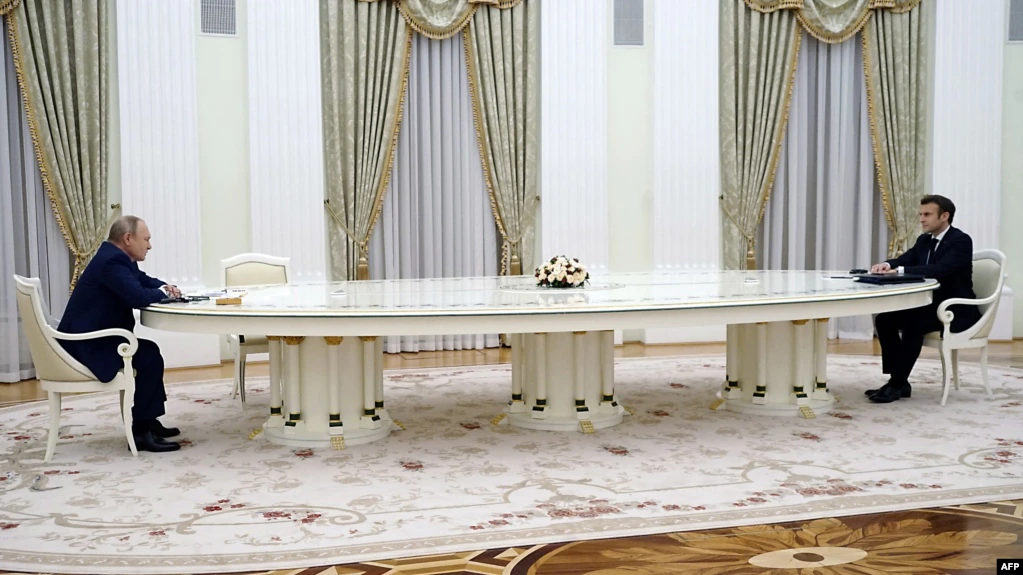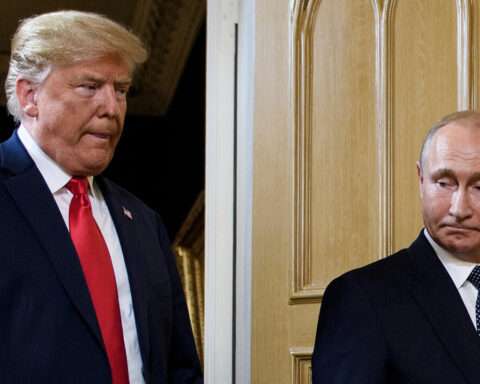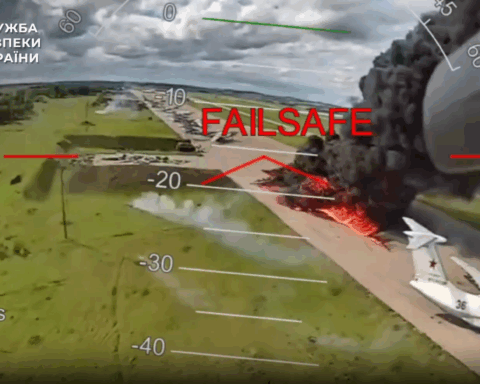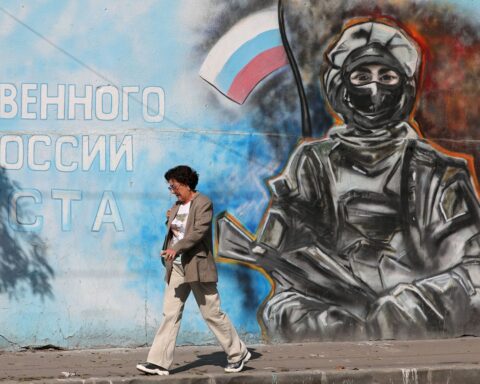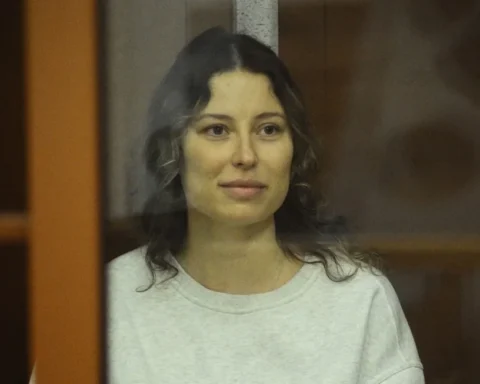French President Emmanuel Macron has begun his meeting with his Russian counterpart, Vladimir Putin, in Moscow amid a fresh round of international diplomatic efforts aimed at reducing tensions over Russia’s military buildup near Ukraine.
Macron told Putin that he hoped the talks could lead to an easing of the tensions.
“This discussion can make a start in the direction in which we need to go, which is toward a de-escalation,” Macron said on February 7 before the two leaders began their meeting. He added that he hoped to “avoid a war” and “build elements of confidence, stability, and visibility for everyone.”
Putin hailed France’s role in shaping European security and noted that the talks came on the anniversary of a friendship treaty signed 30 years ago.
“I realize that we share concern about what’s going on in Europe in the security sphere,” Putin told Macron, adding that he appreciates his efforts to help ensure “an equal security in Europe” and broker a settlement to the Ukrainian crisis.
Ahead of the meeting the Kremlin sought to tamp down any high expectations ahead of the Putin-Macron talks, with spokesman Dmitry Peskov saying no decisive headway was anticipated.
“The situation is too complex to expect decisive breakthroughs in one meeting,” Peskov told reporters, despite calling the talks “very important.”
Ahead of his trip to Moscow, Macron on February 6 spoke with Biden by phone. The 40-minute call allowed the two leaders to “share information about contacts made during the weekend” for good coordination ahead of the trip, the French presidency said.
The White House said the two leaders discussed “ongoing diplomatic and deterrence efforts in response to Russia’s continued military buildup on Ukraine’s borders.”
The West says Russia has amassed more than 100,000 troops at the border in what it suspects could be a prelude to an invasion of Ukraine.
Russia denies it plans to invade but has demanded wide-ranging security guarantees, including that Ukraine never be allowed to join NATO.
On February 7, a top Russian diplomat linked nuclear arms controls talks between Moscow and Washington to the fulfilling of the Kremlin’s security guarantees.
“Our further dialogue with Americans regarding the strategic stability, to a big extent, will depend on how the issues linked to security guarantees are solved,” Vladimir Yermakov, the head of nuclear non-proliferation and controls at Russia’s Foreign Ministry told the Russian news agency RIA Novosti.
German Chancellor Olaf Scholz is also due to hold talks on the Ukraine crisis in Washington with U.S. President Joe Biden.
Scholz’s visit to Washington is his first since succeeding Angela Merkel in December and it aims to raise Berlin’s profile as a mediator in the Ukraine crisis after the new German leader faced criticism for not agreeing to send weapons to Ukraine.
Before departing for Washington on February 6, Scholz repeated that Germany would not send weapons to Ukraine but said Berlin would be prepared to send troops to the Baltic states.
Germany leads a NATO operation in Lithuania and has about 500 soldiers stationed there.
German Foreign Minister Annalena Baerbock promised unequivocal support for Ukraine on February 7 as she traveled to Kyiv where she joined her counterparts from Austria, Slovakia, and the Czech Republic for consultations on the crisis.
“During my visit to Kyiv, I will once again make it unmistakably clear where we stand: as Ukraine’s partner in the EU, NATO and G7, with no ifs and buts on the country’s territorial integrity and on the side of the people of Ukraine,” Baerbock said ahead of her arrival.
“Together we will respond to any further Russian aggression against Ukraine with tough, very concrete measures.”
But Ukrainian Foreign Minister Dmytro Kuleba said on February 7 that he considered Germany’s explanations “unfair” and would raise the issue with Baerbock.


